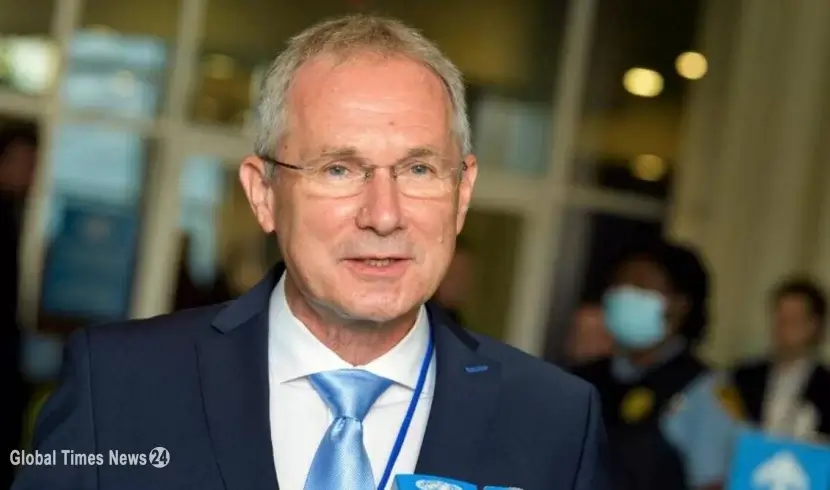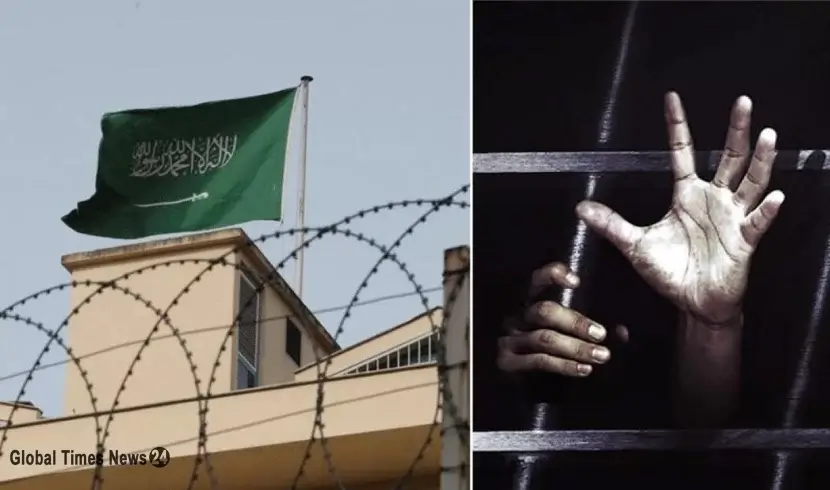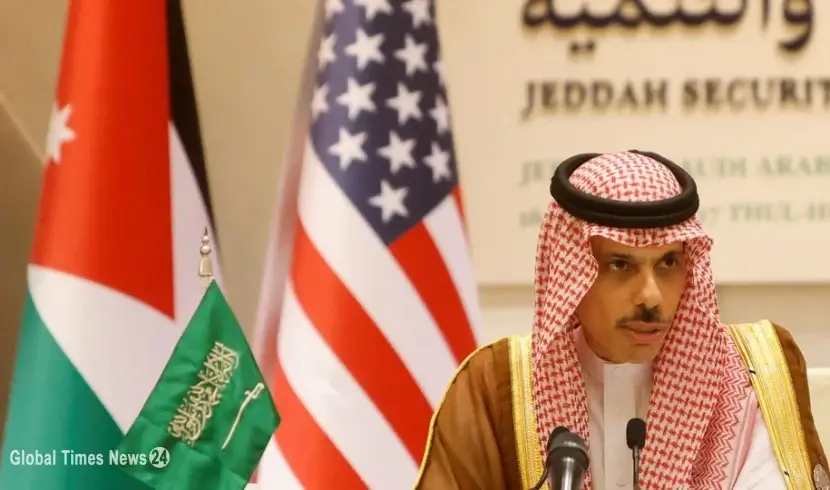Children Executed in Saudi Contrary to Human Rights Claims
Children executed in Saudi Arabia, a shocking violation of human rights, raise profound questions about the country's treatment of minors.
Table of Contents (Show / Hide)

Introduction
The Saudi regime's reputation for human rights violations has once again been marred by the execution of children under the age of 18. Despite claims to have reformed its laws, the regime continues to issue and carry out death sentences against minors. In this article, we will delve into the hidden truth behind Saudi Arabia's brutal treatment of children, and examine the European Saudi Human Rights Organization's latest findings on the matter.
A hidden truth
A human rights organization has shed light on the tragic story of a young Saudi boy who was brutally executed by the Saudi government in a mass execution in 2019. Despite the shocking nature of the incident, the Saudi regime continues to exert pressure on the boy's family members, seeking to silence them and maintain a culture of fear and intimidation, further reminding us of the oppressive and cruel nature of their regime, which continues to suppress human rights and fundamental freedoms with impunity.
Children Executed in Saudi: A Growing Concern
The European Saudi Organisation for Human Rights has been tracking the executions of 13 teenagers by the Saudi regime since the start of 2016. The organisation's findings reveal that these teenagers were minors at the time of their arrest and charging.
In a statement, the organization highlights that the Saudi regime's lack of transparency in death penalty cases perpetuates terror in families, criminalizes human rights and civil society activities, and hinders access to crucial information about those sentenced to death, including their age and arrest date.
In April 2019, the Saudi Ministry of Interior announced the mass execution of 37 citizens. According to documents obtained by the European Saudi Organisation for Human Rights, six of the executed individuals were minors.
The Tragic Story of Jaber Zuhair al-Morhon
The organization has since discovered that Jaber Zuhair al-Morhon, one of the victims of the April execution, was a child when he was arrested and was still a child at the time of his execution.
The human rights organization's information reveals that Jaber Zuhair al-Morhon was arrested on February 27, 2014, at the age of 17 or younger. He spent the subsequent period in detention until his execution.
In November 2016, the Specialized Criminal Court of Saudi Arabia issued a preliminary death sentence for al-Morhon and two others, Mohammad al-Khatim and Abdullah al-Awjan, who were accused of murder.
According to local sources, they were charged with offenses such as armed rebellion against the government, shooting at security patrols and government buildings in Qatif, which are charges often used by the Saudi regime to convict its opponents, even if their actions were non-violent and peaceful, such as participating in protests.
From Arrest to Harassment and Beyond
Once the Saudi regime arrests opposition members, they are often charged with terrorism and referred to the Specialized Criminal Court of Saudi Arabia. This court is notorious for issuing harsh sentences, including death sentences, which are often carried out quickly. However, the ordeal does not end there. Detainees are subjected to physical and psychological abuse, including torture, mistreatment, harassment, and denial of their right to a fair defense. Moreover, the families of the accused are also targeted with threats and intimidation, adding to their suffering and distress.
The harassment and threats against the families of those convicted by the Saudi regime do not stop even after the execution of the death sentence. In fact, the families of the deceased are left to live in constant fear and uncertainty. One of the most egregious forms of punishment inflicted by the regime is withholding the body of the executed person from their family, denying them the right to bury their loved one. This is precisely what happened to Jaber Zuhair al-Morhon's family. Not only was his body not returned to them, but they also faced continued intimidation and threats from the regime after his execution.
The International Community's Response
In July 2017, the United Nations' rapporteurs sent a letter to the Saudi regime urging a fair trial for Jaber Zuhair al-Morhon and requesting that the death sentence not be issued or carried out. They believed that the charges against him were not severe enough to warrant a death sentence, especially when compared to the cases of 17 other individuals who were tried alongside him. Despite this, the Saudi regime ignored the UN's recommendations and proceeded with issuing the death sentence to al-Morhon and 17 other Saudi citizens in April 2019. The regime ultimately carried out the sentence later on, demonstrating the kingdom's disregard for international human rights norms and standards.
According to the latest monitoring by the United Nations and human rights organizations, the Saudi regime has issued death sentences for at least 14 Arab children since 2016, with many of these sentences being carried out. This shocking trend has resulted in a significant number of Saudi children executed.
These organizations believe that the actual number of child executions in Saudi Arabia is likely much higher than what has been reported. In the case of Jaber Zuhair al-Morhon, it is likely that others who were arrested at the same time, including minors, were also charged with similar crimes.
The European Saudi Human Rights Organization is strongly condemning the Saudi regime for its continued practice of executing children under the age of 18, despite its claims to have amended the relevant laws.
The organization has obtained documents that reveal the shocking truth: at least 9 children are currently facing execution in Saudi Arabia, and two of them, Abdullah al-Razi and Jalal al-Bad, are already certain to be executed. The regime's claims that it has reformed its laws to protect children's rights are nothing more than a lie, as the evidence clearly shows that it continues to issue and carry out death sentences against children.
Conclusion
The execution of children in Saudi Arabia reflects the regime's disregard for human rights and its refusal to reform its draconian laws. The European Saudi Human Rights Organization's findings are a warning to the international community, highlighting the need for urgent action to be taken to protect the rights of children in Saudi Arabia. As we continue to monitor the situation, it is clear that the fight against child executions in Saudi Arabia is far from over.
URL :
News ID : 3287


 Saudi Arabia demands to include Houthis name on the list of terrorist groups
Saudi Arabia demands to include Houthis name on the list of terrorist groups
 Biden to Netanyahu: U.S. Won't Participate in Israel's Counterattack on Iran
Biden to Netanyahu: U.S. Won't Participate in Israel's Counterattack on Iran
 What If You Were the Last Person on Earth
What If You Were the Last Person on Earth
 Brazil’s president denounces ex-lawmaker for opening fire on police
Brazil’s president denounces ex-lawmaker for opening fire on police
 Hungarian diplomat Csaba Korosi elected UN Assembly president
Hungarian diplomat Csaba Korosi elected UN Assembly president
 Saudi Children face executions, torture, and long-term imprisonment
Saudi Children face executions, torture, and long-term imprisonment
 Living in North Korea, an escape experience
Living in North Korea, an escape experience
 Alarming Statistics of Death Sentences in Saudi Arabia in 2023
Alarming Statistics of Death Sentences in Saudi Arabia in 2023
 Surprising Fact about Henry Ford You didn't Expect
Surprising Fact about Henry Ford You didn't Expect
 Bin Salman's Reforms: Misleading Claims or Reality?
Bin Salman's Reforms: Misleading Claims or Reality?
